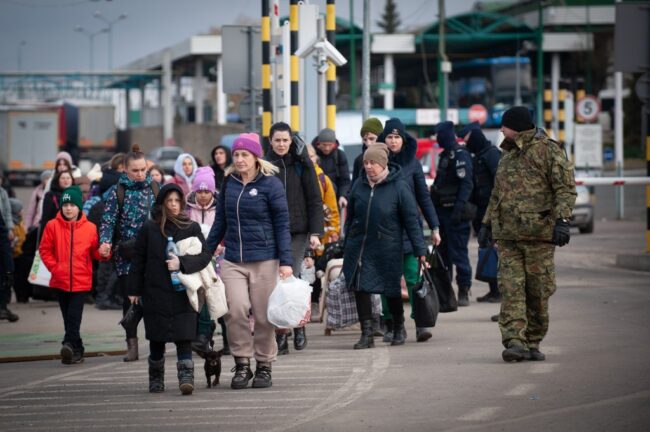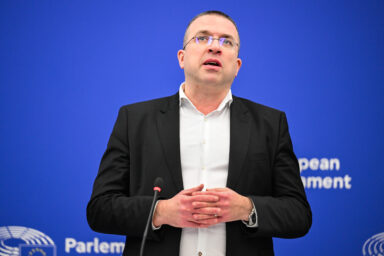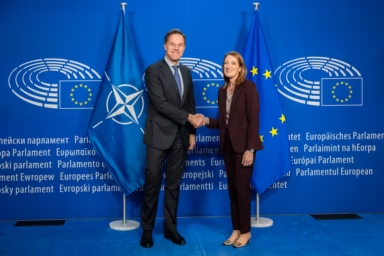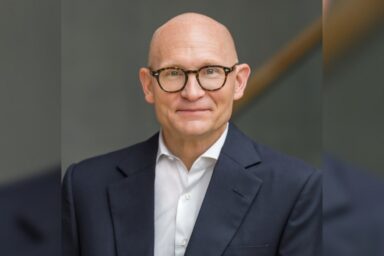War destroys not only lives and homes but also psyches. A summit on mental health, held in the European Parliament on Monday, opened up a painful but necessary topic: How to help people who have fled the war in Ukraine but carry the trauma with them?
The summit, organised by a duo of Hungarian MEPs András Kulja and Zoltán Tarr (both EPP), brought together policymakers, therapists, humanitarians, and academics to create an open platform for sharing experiences and suggestions on how to respond more effectively to the growing mental health crisis among refugees. The topics covered not only the direct impact of war on individuals, but also structural barriers to accessing quality care in host countries.
Refugees are not a mere statistic
In his opening speech, Mr Kulja stressed that we should never forget the human dimension of refugees. “It is very important to stress that we are talking about people affected by war. These people want peace, to go home and have their old life back,” he said, while pointing out the politicisation of the issue: “It’s very sad when some politicians try to dehumanise refugees for political reasons.”
He went on to praise the European Commission’s commitment to mental health and called for a comprehensive approach—from early detection of mental health problems to accessible care and education of professionals and the public. He said the war had permanently affected millions of people. “Millions of Ukrainians have suffered from the war and have had to leave their homes,” he recalled.
Two layers of trauma
Clinical psychologist Anastasia Ariefieva, a trauma therapist, spoke about the psychological impact of the war on Ukrainian refugees. According to her, displaced Ukrainians have to deal with two levels of suffering—war trauma and exile trauma.
“It’s sometimes hard to distinguish the two at first,” she said. But both share what is known as moral trauma, arising when people see violence being perpetrated and feel that the world is not helping, merely watching—or even condoning—the actions of the perpetrator. All this exacerbates the suffering of the victims.
You might be interested
According to Ariefieva, war trauma manifests itself in post-traumatic stress disorder (PTSD), which can manifest itself both psychologically—for example, memory problems, anxiety, or insomnia—and physically, such as headaches, heart palpitations or chronic fatigue.
Emigration as a new beginning
The stress associated with the refugee experience includes, among other things, uncertainty about the future, difficulties with adaptation, language barriers (which can also prevent correct diagnosis) and strong homesickness. “The older people are, the more loss of identity they feel,” Ariefieva pointed out. For some, however, exile feels like a new beginning; usually for those who were unhappy with their previous lives.
A key role in recovery, according to the psychologist, is the possibility of self-fulfilment. “Forming social ties, returning to old interests, working, and sometimes helping other expatriates integrate helps.” Integration is crucial, she says. “Those who partly retain their original identity and partly adopt a new one in a new country do better,” she highlighted.
Secondary trauma among those who help
András Spányik, head of the Medspot Foundation, spoke about his experience in the field. He described the difficult work in refugee camps, especially in the early days of the war. “In the very first days after the outbreak of the war in 2022, we helped in Beregsurány, on the border with Ukraine. We treated up to 12 patients a day, over 2,500 refugees in total.”
He explained that many of the new arrivals were in such deep shock that they did not even realise they needed psychological help.
Mr Spányik also highlighted the psychological challenges faced by aid workers themselves. “Sometimes we experience secondary traumatisation, and we have to work on that,” he said. The high volume of work and prolonged exposure to an environment of suffering increases the risk of burnout.
Goverments should do more
Mr Spányik said the Hungarian government has not provided sufficient assistance, which has led many refugees to continue their journeys to other European countries. The Medspot Foundation continues to provide medical and psychological care to the so-called internally displaced persons. “Many of them don’t even have health insurance,” Mr Spányik pointed out, adding that in addition to medical care, they also provide social support, e.g., organising summer camps for children or collecting Christmas gifts.
According to the data he cited, there are approximately 67,000 Ukrainian refugees living in Hungary, of whom 58 per cent are women. Only a quarter of them have learned the Hungarian language.
On stigma and EU responsibility
The relevant part of the summit concluded with a panel discussion entitled Breaking the Stigma: An Open Conversation on Mental Health. MEP Nikos Papandreou (S&D/GR) called for more European solidarity. “The EU should help Ukraine more, especially now that US spending through USAID has been cut,” he appealed.
Geert Dom, psychiatrist at the University of Antwerp and President of the European Psychiatric Association, stressed that mental health problems are not limited to war zones. “The human mind is constantly under pressure,” he remarked. He noted that the burden on mental health has increased measurably in recent decades, even outside the context of war.











